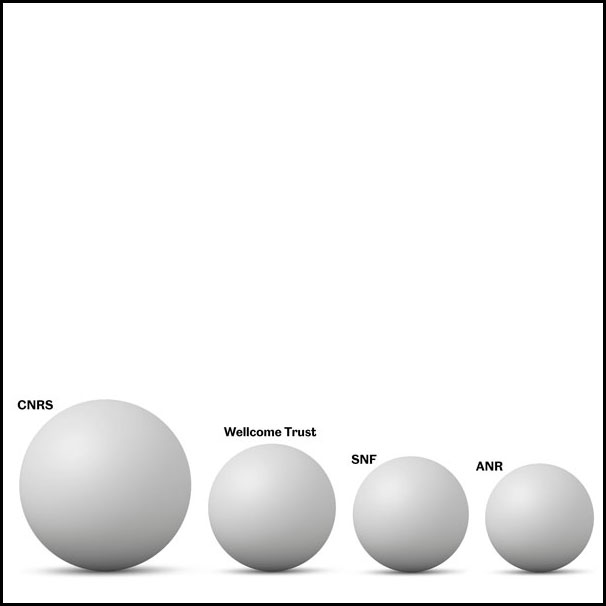In brief: Corona special
In a funding frenzy
When most European countries imposed a lockdown because of Covid-19, funding agencies around the world rushed to launch calls for research projects. Is this really a blessing?

The novel coronavirus has led to numerous restrictions, but not when it comes to research funding. | Image: iStock/1001slide
The coronavirus crisis has had a seismic effect on the research funding ecosystem. Funders quickly launched calls for projects and have been accelerating their selection processes. By 25 March 2020, three weeks after launching its CHF 10 million call, the SNSF had received 284 proposals and made its final selection within six weeks. UK Research and Innovation has initiated a rolling call with no deadline, promising a response within 10 days. The French ANR selected 44 of 270 proposed projects within three days and confirmed their funding two weeks later. Universities have launched their own funding schemes too. The Wellcome Trust, the world’s largest health research charity, called on private companies to fund its USD 8 billion Covid-Zero initiative. But some researchers commented that they were working 24/7 on Covid-19, so just didn’t have the time to fill in grant proposals, nor months to wait for the money. That’s where tech billionaires moved in to disrupt things, as usual. The USD 11 million “Fast Grants Initiative” has an application form that takes half an hour to fill in, and has vowed to select projects within 48 hours. Other scientists have called for money to be allocated to research that had already been undertaken during the pandemics.
The spending spree could also have a negative side, however. Following the mad-cow-disease crisis, “politicians (against my advice) diverted every funding source towards prion research”, tweeted Adriano Aguzzi, a prion researcher at the University of Zurich. Later in his thread, he writes: “Big surprise: this did not lead to rapid invention of therapies (there are still none). What happened instead was that the quality threshold of funding decreased precipitously”. At the end, he concludes: “A decade later, politicians complained that ‘the scientists got a lot of money and did nothing good with it’. Today, I have a hunch that history will repeat itself”.




